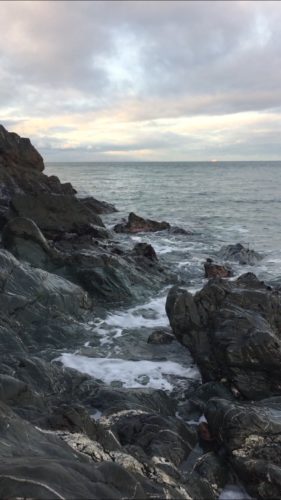I am now approaching the end of my fifth month in Dublin and I can hardly believe how quickly the time has gone. It feels like just yesterday that I got on a plane to fly to Ireland for the first time in my life. I did not know exactly what was waiting for me on the other side of the Atlantic, but I knew that I was excited to find out.
When I was in college I always wanted to take more literature classes, but between being premed and being in the chemistry department, I had little time to do so. Since coming to Ireland I have been fortunate to have the chance to finally read many of the works that I wanted to read when I was in college but did not have the time: Freud, Lacan, Foucault, Trollope, hooks, Mulvey, Lorde, Puar and so many others.
These last five months have in many ways been a time for me to get inside my own head. I have been absorbed with reading novels and writing essays about how gender operates in classic works of Irish literature, but recently I have been absorbed with writing essays for my application to medical school. As I have spent time reflecting on my journey to where I am today, I have asked myself what studying literature in Dublin has to do with going to medical school. Is this just a break from my studies related to medicine, or am I taking time to start to shape myself into the kind of doctor I want to be?
Literature has remained a core department in the liberal arts because literature is a medium through which humanity expresses possibility. Written works, expository and fiction, allow us to explore the past and then imagine what change can look like for the future. Doctors today more than ever need to be able to imagine new avenues for change in the American healthcare system, and the study of literature is essential not only for envisioning change, but also for showing others how things might change for the better with a little imagination.

I enjoy taking the train to Bray and walking along the coast. It is an excellent place to go to be alone with your thoughts.
As I think about what next semester will bring, I hope to merge what I have been reading with what I experience on a daily basis in Ireland. In the coming weeks I hope to begin my dissertation work on exploring how constructs of femininity and adolescent womanhood play a role in the anti-vaccination movement against Gardasil in Ireland, and I couldn’t be more excited to get to work. I want to understand how people use stories and folklore to rationalize painful experiences, and how this impulse can be deconstructed to help stop a dangerous resistance to vaccination in Ireland and abroad.
